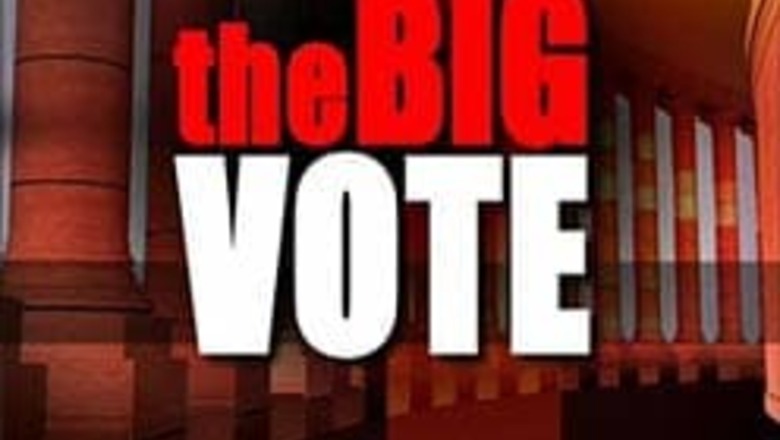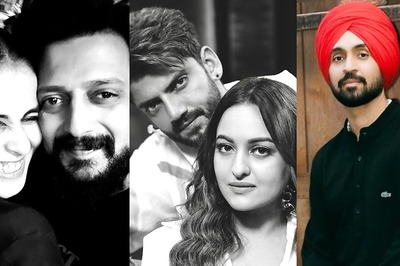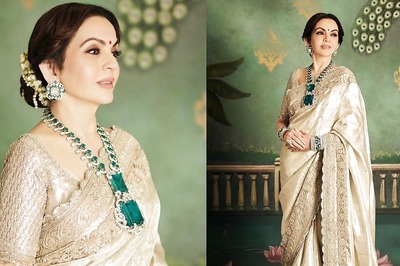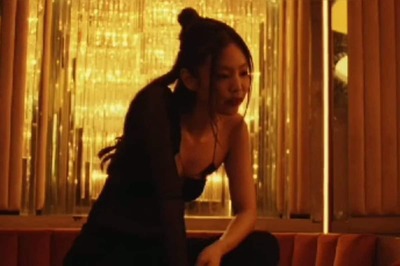
views
New Delhi: A disgruntled politician, an idealist homemaker, a Dalit leader. They are just three among a large crop of candidates who are hoping against hope to emerge winners in Delhi's assembly elections. But with no major political party backing them, it is an impossible task.
Independents and candidates of small and often virtually unknown parties have been traditional players in Indian elections. Delhi, which will pick a new government on November 29, has 630 of them in the fray.
Most of them know they will lose. But that has not dented their will to fight it out.
Nidhi Mahajan, 38, is a homemaker contesting from the Mathiala constituency in the sprawling middle class district of Dwarka.
Having once lived in the US, Mahajan says she "could not stand on the sidelines and quietly watch the country decay".
"I want to secure a good future for my daughters which does not seem to be happening. Government schools are in terrible condition. False promises of water supply are made to citizens," Mahajan told IANS while campaigning in her area.
She talks of empowering citizens and telling them to make a well- informed choice when they vote.
Another man trying his luck on his own strength is Ganesh Pal, a science graduate who had been with the Congress party for three long decades before he quit after failing to get the party ticket.
Convinced that ordinary citizens have no future in a larger party, the 50-year-old expresses confidence of winning from the mainly rural constituency of Burari in west Delhi.
Pal has set up a Bharatiya Sarvodaya Kranti Party (BSKP), which promises to provide pension to voters in the country—never mind that India has over 680 million voters.
Political analyst G V L. Narasimha Rao explains why independents enter the electoral fray in India despite knowing they are doomed.
PAGE_BREAK
"Many (such) candidates often hope to be in the reckoning from bigger parties for future elections, even if they lose by contesting independently or from (minor) parties," he said.
In all 875 people are running for 70 assembly seats in Delhi. As many as 631 are independents or from insignificant parties the Election Commission does not recognise as political parties.
Only one independent candidate won in the 2003 elections in Delhi - of the whopping 599 who were not attached to major political parties.
Clearly, some of the smaller parties are already frustrated.
Government official-turned-political activist Udit Raj blames people for turning "a blind eye to money, caste and power used by selfish politicians".
"The masses are corrupt, they won't vote without ample booze and cash for votes," Udit Raj said in a disgusting tone.
Yet that has not prevented him from fielding 20 candidates from his Indian Justice Party, spending Rs.200,000-300,000 on campaigning.
Ganesh Pal, however, complains he does not have even that much to splurge. He is depending on his extended family, large crop of friends and fellow members of his 'Gochar' community to help him win.
One man who has been an independent in earlier elections and is now backing eight similar-minded men and women is Shiv Khera, a motivational speaker and author of many books. He now heads the Bharatiya Rashtravadi Samanta Party (BRSP).
Most independents cited their disillusionment with the administration, red tape and mainline political parties as the reasons to contest.
Analyst Rao feels there are all kinds of independents.
"There are genuine aspirants who also have financial backing to step into political forums. And there are others who may contest for the heck of it or for publicity," he said.




















Comments
0 comment